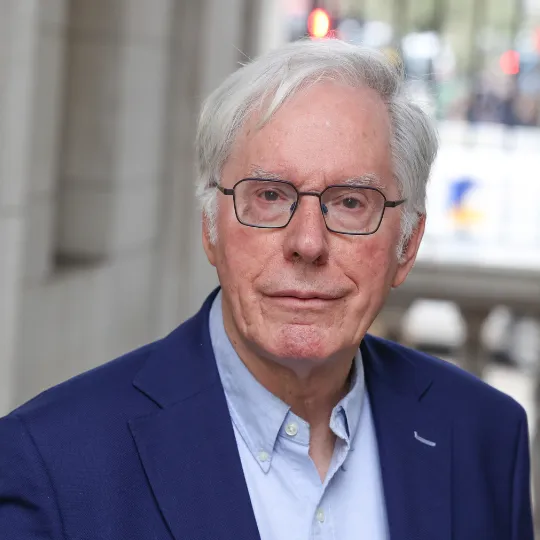
Professor John Deathridge
Emeritus King Edward Professor of Music
Contact details
Biography
John Deathridge was King Edward Professor of Music from 1996, when he joined the Department after being Reader in Music at the University of Cambridge, and a Fellow of King’s College Cambridge since 1983. He also taught at the Universities of Princeton and Chicago and continues to be active as a performer (he is a Fellow of the Royal College of Organists) and regular broadcaster. In 2002 he was elected a corresponding member of the American Musicological Society and is immediate past president of the Royal Musical Association.
Research Interests and PhD Supervision
- Wagner
- New music/philosophy
- Social theory
- Music criticism
- Editing/translating
- Beethoven
John Deathridge’s main research interests are German music, in particular Richard Wagner, and social theory. His groundbreaking work on Wagner is reflected in his book on Rienzi (Oxford 1977) and three collaborative publications, The New Grove Wagner (with Carl Dahlhaus), the WWV: Verzeichnis der musikalischen Werke Richard Wagners und ihrer Quellen(with Martin Geck and Egon Voss), the Wagner Handbook (with Ulrich Müller and Peter Wapnewski), and his latest book Wagner Beyond Good and Evil. His current research includes a new translation of Wagner’s Ring (Penguin Classics), a revisionist reappraisal of the life and work of Beethoven (Faber), and an extended essay on German Music and its consequences (Music on Trial).
Past doctoral students supervised by John Deathridge include Alex Rehding (on nature and nationhood in Hugo Riemann’s harmonic theory ), Julian Horton (on late 19th-century tonality and Anton Bruckner) and Nikolaus Bacht (on music and time in Adorno). Recent successful PhD candidates are Áine Sheil (on the reception of Die Meistersinger von Nürnberg in the Weimar Republic), Mary Gifford (on the life of Lord Berners), Anna Papaeti (on woman and sacrifice in Wagner's dramas), Beate Willma (on Ingeborg Bachmann and the musical avant-garde), Rebecca Frost (on music and early BBC religious broadcasting), Christoph Knöpfel (Ferneyhough and compositional expressivity) and Hugo Shirley (reappraising Strauss/Hofmannsthal). Current students are researching a variety of subjects, including Berg and Strauss operas (Marc Brooks), Nietzsche’s theories of music and language (Kathy Fry), post-1945 fascism and music aesthetics (Huw Hallam), Wagnerian opera under the Third Reich and beyond (Luke Berryman) and Lacanian theory and musical listening (Jun Zubillaga-Pow).
For more details, please see his full research profile here.
Teaching
John Deathridge has taught undergraduates at King’s in all three years, including courses on the Symphony from Berlioz to Mahler, Issues in Music Historiography (the long 19th century), Wagner, and the Origins of Twentieth Century Music.
He has also taught postgraduate courses on Music and Enlightenment, Music Historiography, Wagner’s Ring, and Theories of Modernism and the Avant-garde.
John liked to centre his courses around works that are established in various repertories and media, subjecting them to musical and social analysis with several tools ranging from Keynote /Powerpoint to piano to blackboard and pen. He prefers classes to formal lectures, expecting students to engage, wherever they can, in an ongoing conversation about history as a way of understanding music in the present, and how it ‘works’ as composition and performance.
Media and Engagement
He is also currently advisor and contributed to the BBC 4 TV series The Symphony: A History in Four Movements screened in Autumn 2011.
